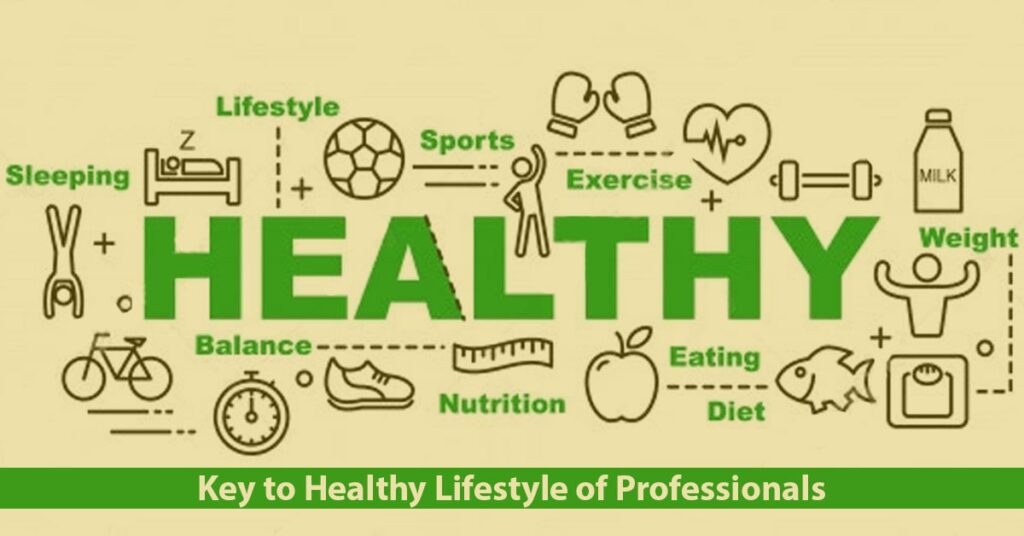

Introduction
Maintaining a healthy lifestyle is about creating sustainable habits that improve your physical, mental, and emotional well-being. Drawing from the insights in my book, this post will highlight key concepts and actionable tips that you can implement to live a healthier and more fulfilling life.
1. Prioritize Balanced Nutrition
Eat Whole, Unprocessed Foods
- Whole foods—such as vegetables, fruits, lean proteins, whole grains, and healthy fats—should be the foundation of your diet. These foods are nutrient-dense, supporting overall health and helping prevent chronic diseases.
Actionable Tip: Plan meals around whole foods by focusing on what’s fresh and minimally processed. For example, swap out processed snacks like chips for fruits and nuts, and choose lean proteins like chicken or fish over processed meats.
Portion Control
- Even healthy foods can lead to weight gain if consumed in excess. Moderation is key to maintaining a healthy weight while still enjoying a variety of foods.
Actionable Tip: Use smaller plates, eat slowly, and listen to your body’s hunger cues to avoid overeating. Consider following portion guides, such as filling half your plate with vegetables, one-quarter with lean protein, and one-quarter with whole grains.
Stay Hydrated
- Water is essential for digestion, nutrient absorption, circulation, and temperature regulation. Dehydration can negatively impact your mood, energy levels, and overall performance.
Actionable Tip: Aim for 8-10 glasses of water daily healthy lifestyle. Carry a water bottle with you to encourage consistent hydration, and try adding natural flavors like lemon or cucumber to make it more enjoyable.
2. Regular Physical Activity

Consistency Over Intensity
- Regular exercise is more effective than occasional intense workouts. The goal is to find activities that you enjoy and can sustain over the long term, whether it’s weightlifting, walking, swimming, or dancing.
Actionable Tip: Start with moderate, enjoyable exercises like walking or cycling for 30 minutes a day, five times a week. Gradually increase intensity as your fitness improves, but always focus on consistency.
Strength Training for Longevity
- Strength training, such as weightlifting or resistance exercises, is essential for building muscle, improving metabolism, and supporting joint health. It helps reduce the risk of age-related muscle loss (sarcopenia) and increases bone density, especially important as we age.
Actionable Tip: Incorporate strength training into your routine at least two to three times a week. Focus on compound movements like squats, deadlifts, push-ups, and pull-ups, which engage multiple muscle groups and improve functional strength.
Incorporate Flexibility and Balance Training
- Flexibility and balance exercises like yoga and Pilates help improve mobility, posture, and joint health. These activities also reduce the risk of injury, particularly as you get older.
Actionable Tip: Dedicate at least one session per week to flexibility training. Simple stretches or yoga sequences can be done at home and incorporated into your morning or evening routine.

3. Prioritize Sleep and Recovery
The Importance of Quality Sleep
- Sleep is critical for physical and mental recovery. During sleep, your body repairs tissues, produces essential hormones, and consolidates memory. Poor sleep is linked to a higher risk of chronic conditions such as obesity, diabetes, and heart disease.
Actionable Tip: Aim for 7-9 hours of quality sleep per night. Establish a consistent sleep schedule, avoid screens for at least an hour before bed, and create a calming bedtime routine. This might include activities like reading, meditation, or gentle stretching.
Active Recovery
- While intense exercise is important, recovery days are equally vital. Active recovery includes low-intensity activities like walking, yoga, or light cycling, which help promote circulation, reduce muscle soreness, and prevent burnout.
Actionable Tip: Schedule at least one or two active recovery days per week. Use these days for light movement, mobility work, or relaxation to allow your muscles to recover while staying active.
4. Mental and Emotional Well-being
Mindfulness and Stress Management
- Mental health is just as important as physical health. Mindfulness practices such as meditation, deep breathing exercises, and journaling can help manage stress, improve focus, and enhance emotional resilience.
Actionable Tip: Incorporate at least 5-10 minutes of mindfulness practice into your daily routine. Start your day with a short meditation, focus on deep breathing during breaks, or write down three things you are grateful for each evening.
Social Connections and Support
- Strong social connections are essential for emotional well-being. Maintaining healthy relationships with family and friends can reduce stress, improve mood, and even boost longevity.
Actionable Tip: Make time to connect with loved ones regularly, whether through phone calls, video chats, or in-person meetups. Consider joining fitness groups, clubs, or other social activities to foster new relationships and build a supportive community.
Pursue Hobbies and Interests
- Engaging in activities that bring joy and fulfillment outside of work or fitness can improve your overall happiness and reduce stress. Hobbies stimulate creativity, provide a sense of accomplishment, and contribute to emotional balance.
Actionable Tip: Dedicate time each week to pursue a hobby you enjoy, such as painting, playing an instrument, cooking, or gardening. This allows you to relax and unwind while focusing on something that brings you pleasure.

5. Preventive Health and Regular Check-Ups
Routine Health Screenings
- Regular check-ups and preventive screenings can help detect potential health issues before they become serious. Staying proactive about your health reduces the risk of illness and supports long-term wellness.
Actionable Tip: Schedule annual physical exams and stay up to date with recommended screenings based on your age, gender, and family history. Talk to your doctor about any concerns or symptoms you may have.
Vaccinations and Immunizations
- Vaccinations are a key part of preventive health, protecting you from various illnesses and infections. Staying current with vaccines supports both personal health and community well-being.
Actionable Tip: Discuss with your healthcare provider which vaccinations you need based on your lifestyle, travel plans, and medical history. Make sure you’re up to date on your flu shot, tetanus booster, and other necessary vaccines.
6. Consistency and Adaptability
Developing Healthy Habits
- The key to a healthy lifestyle is creating habits that you can sustain long-term. Small, consistent changes add up over time, leading to significant improvements in your health and well-being.
Actionable Tip: Focus on building one healthy habit at a time, such as drinking more water, walking after meals, or practicing mindfulness. Once this habit becomes routine, build on it by incorporating other healthy practices.
Adapt to Life’s Changes
- Life is unpredictable, and your routine may be disrupted by changes such as work demands, family responsibilities, or personal challenges. It’s important to adapt and remain flexible in your approach to health and fitness.
Actionable Tip: Be forgiving of yourself during difficult times. If you miss a workout or have an off day with your diet, don’t dwell on it. Instead, refocus and make the next healthy choice.

Conclusion
Maintaining a healthy lifestyle is an ongoing journey that requires balance, consistency, and flexibility. By focusing on balanced nutrition, regular physical activity, mental well-being, and preventive care, you can improve your overall health and longevity. Remember that small changes add up over time, and the key to lasting success is creating habits that work for you. Stay patient, stay committed, and enjoy the process of becoming a healthier, happier version of yourself.
For more detailed insights and actionable tips, be sure to explore my book on living a healthy lifestyle, where you’ll find in-depth strategies to support your journey to health and wellness.
4o
